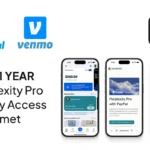Now Reading: 12 Best E-Learning Platforms to Teach and Sell Courses Online
-
01
12 Best E-Learning Platforms to Teach and Sell Courses Online
12 Best E-Learning Platforms to Teach and Sell Courses Online

“Which is the best e-learning platform to sell courses?” This question lands in my inbox almost daily from aspiring course creators. The truth? There’s no one-size-fits-all answer. Your perfect platform depends on your specific needs, technical comfort level, and business model. That’s why I’ve created this detailed breakdown of the 12 best e-learning platforms, based on my experience helping hundreds of entrepreneurs build successful online education businesses. By the end of this guide, you’ll know exactly which platform will help you transform your expertise into a thriving online course business.
LearnWorlds
LearnWorlds stands out as a premium AI-powered all-in-one platform designed for course creators, coaches, and businesses. What makes this platform exceptional is its comprehensive feature set that supports interactive learning experiences.
The platform offers powerful video interactivity tools that allow you to create engaging course content. You can add notes, questions, and interactive elements directly within your videos, keeping students engaged throughout their learning journey. The built-in analytics provide valuable insights into student behavior and course performance.
One of the standout features is the no-code website builder, which makes it easy to create a professional-looking course website without any technical expertise. The platform also includes robust assessment tools to evaluate student progress and understanding.
Key Features
- Interactive video capabilities
- Comprehensive analytics dashboard
- No-code website builder
- Advanced assessment tools
- White-labeling options
Pricing
LearnWorlds offers multiple pricing tiers to accommodate different needs. While they don’t have a free plan, they do provide a 30-day trial period to test the platform before committing.
Best For
LearnWorlds is ideal for entrepreneurs, instructors, educators, and businesses looking for a comprehensive solution to create, market, and sell professional online courses.
Thinkific
Thinkific is a standalone platform that has gained popularity among course creators for its user-friendly interface and robust feature set. I’ve found that Thinkific excels in providing tools that make course creation accessible to beginners while offering enough advanced features to satisfy experienced educators.
The platform’s drag-and-drop course builder makes it easy to organize your content and create a structured learning experience. You can include various content types such as videos, quizzes, surveys, and downloadable resources. Thinkific also provides customizable course websites with responsive themes that look great on all devices.
What sets Thinkific apart is its focus on scalability and customization. The platform integrates with various marketing tools, automation platforms, and CRM systems, allowing you to build a seamless sales funnel for your online courses.
Key Features
- Intuitive drag-and-drop course builder
- Customizable course websites with responsive themes
- Drip scheduling for controlled content release
- Comprehensive marketing and sales tools
- Community building features
Pricing
Thinkific offers a free plan with basic features, making it accessible for beginners. Paid plans start at a competitive rate and include additional features such as priority support, advanced customization options, and marketing tools.
Best For
Thinkific is particularly well-suited for solopreneurs, small to medium-sized enterprises, and online trainers who want a user-friendly platform with robust course creation and marketing capabilities.
Teachable
Teachable offers an intuitive platform with a simple interface that makes it easy to create and sell online courses. I appreciate how Teachable streamlines the course creation process, allowing you to focus on content rather than technical details.
The platform includes built-in ecommerce features that make it easy to accept payments and manage transactions. You can offer different pricing options, including one-time payments, subscriptions, and payment plans. Teachable also provides email marketing tools to help you engage with your students and promote your courses.
One of the standout features is the ability to create and sell coaching services alongside your courses. This allows you to offer more personalized support to your students and diversify your income streams.
Key Features
- Simple and intuitive interface
- Built-in ecommerce functionality
- Email marketing tools
- Coaching services integration
- Mobile-responsive course pages
Pricing
Teachable offers a basic free plan with limited features. Paid plans start at $59/month and include additional features such as custom domains, affiliate marketing tools, and advanced reporting.
Best For
Teachable is an excellent choice for new course creators, solopreneurs, and creative professionals who want a straightforward platform with strong ecommerce capabilities.
Useful Articles:
Kajabi
Kajabi positions itself as an all-in-one solution for course creators, and it certainly delivers on that promise. What sets Kajabi apart is its comprehensive approach to online business, offering not just course hosting but also robust marketing and sales tools.
The platform excels in asynchronous course delivery, allowing students to learn at their own pace. Kajabi’s marketing funnels are particularly impressive, providing pre-built templates that you can customize to promote your courses effectively. The integrated email capabilities allow you to create automated sequences to nurture leads and engage with your audience.
I’ve found that Kajabi’s website builder is one of the most flexible among course platforms, allowing you to create a professional online presence without needing additional tools.
Key Features
- Comprehensive marketing funnels
- Integrated email marketing
- Website builder with customizable themes
- Product blueprints for quick course setup
- Community features for student engagement
Pricing
Kajabi’s pricing starts at $149/month, making it one of the more premium options. However, the value it provides through its all-in-one approach can justify the cost for established course creators.
Best For
Kajabi is ideal for established course creators and businesses looking for a comprehensive solution that combines course hosting, marketing, and sales tools in one platform.
Udemy
Udemy offers a unique approach as a massive marketplace with over 62 million students and 75,000 instructors. Unlike other platforms where you build your own audience, Udemy provides access to its existing user base, potentially giving your courses significant exposure.
The platform handles much of the marketing for you, promoting courses through its search algorithms, email campaigns, and paid advertising. However, this comes at a cost-Udemy takes a significant percentage of your revenue, up to 67% for sales they generate.
Creating courses on Udemy is straightforward, with a user-friendly interface and clear guidelines. The platform supports various content types, including video lectures, quizzes, and downloadable resources.
Key Features
- Access to a massive student marketplace
- Built-in promotion and marketing
- User-friendly course creation tools
- Student engagement features
- Mobile app for learning on the go
Pricing
Udemy is free to join as an instructor. However, the platform takes a percentage of your course sales-50% for sales through instructor coupons and up to 67% for sales generated by Udemy.
Best For
Udemy is best suited for instructors who want to reach a large audience without building their own marketing infrastructure. It’s particularly good for those teaching popular topics with high demand.
Skillshare
Skillshare is a community-based platform that focuses on creative skills and project-based learning. With over 35,000 premium courses and a membership model, Skillshare offers a different approach to course monetization compared to one-time purchases.
The platform emphasizes shorter, project-based classes that typically run between 20-60 minutes in total length. This format works well for creative topics and practical skills that can be demonstrated through projects. As an instructor, you earn revenue based on the minutes your courses are watched by premium members.
I find Skillshare’s community aspect particularly valuable, as it encourages students to share their projects and engage with each other, creating a more interactive learning environment.
Key Features
- Project-based learning format
- Community engagement tools
- Membership-based revenue model
- Emphasis on creative and practical skills
- Simple course creation process
Pricing
Skillshare is free to join as an instructor. Your earnings are based on a royalty system tied to the number of minutes premium members spend watching your classes.
Best For
Skillshare is ideal for creative professionals and experts in fields like design, photography, writing, business, and technology who want to teach practical, project-based classes.
Useful Articles:
Mighty Networks
Mighty Networks stands out for its focus on community building alongside course delivery. Ranked #1 in community management, this platform allows you to create a thriving ecosystem around your courses.
The platform supports both live and asynchronous courses, giving you flexibility in how you deliver your content. Built-in events and livestreaming capabilities make it easy to engage with your audience in real-time, creating a more dynamic learning experience.
What I appreciate most about Mighty Networks is how it puts community at the center of the learning experience. Students can connect with each other, share insights, and collaborate on projects, creating a more engaging and supportive environment.
Key Features
- Robust community management tools
- Live and asynchronous course options
- Built-in events and livestreaming
- Mobile app for on-the-go learning
- Flexible membership options
Pricing
Mighty Networks offers several pricing tiers, starting with a basic plan for community building and scaling up to include course creation and delivery features.
Best For
Mighty Networks is ideal for creators who want to build a community around their courses and offer a more interactive, social learning experience.
Podia
Podia offers a versatile platform for selling various digital products, including courses, programs, and memberships. What makes Podia stand out is its simplicity and all-in-one approach to digital product sales.
The platform features a clean, intuitive interface that makes it easy to create and organize your courses. You can include various content types such as videos, PDFs, quizzes, and downloadable resources. Podia also provides strong website building features, allowing you to create a professional online presence without additional tools.
I particularly appreciate Podia’s straightforward pricing model, which includes unlimited courses, students, and bandwidth with no transaction fees on any plan.
Key Features
- All-in-one platform for digital products
- Clean, intuitive interface
- Strong website building capabilities
- Email marketing tools
- Membership and community features
Pricing
Podia offers several pricing tiers, starting at $39/month for the basic plan. All plans include unlimited courses and students, with higher tiers adding features like memberships, affiliate marketing, and priority support.
Best For
Podia is ideal for creators who want a simple, all-in-one platform to sell various digital products, including courses, downloads, and memberships.
LearnDash
LearnDash is a powerful WordPress LMS plugin that allows you to integrate course functionality directly into your existing WordPress website. This makes it an excellent choice for those who already have a WordPress site and want to add courses without migrating to a separate platform.
The plugin features a Gutenberg-style editor that makes course creation intuitive for WordPress users. You can create complex course structures with lessons, topics, quizzes, and assignments. LearnDash also supports drip content, prerequisites, and various engagement tools to enhance the learning experience.
One of the standout features is the focus mode, which provides a distraction-free environment for students to engage with your course content.
Key Features
- WordPress integration
- Gutenberg-style editor
- Advanced course structuring
- Focus mode for distraction-free learning
- Certificates and badges
Pricing
LearnDash offers annual licensing options at different tiers, with higher tiers supporting more sites and including additional features.
Best For
LearnDash is ideal for WordPress users who want to integrate courses with their existing websites and maintain full control over their learning environment.
Useful Articles:
Educadium
Educadium helps entrepreneurs and organizations create, manage, and profit from online teaching through its EasyCampus platform. The platform offers a balance of simplicity and functionality, making it accessible for beginners while providing enough features for more advanced users.
EasyCampus provides tools for course creation, student management, and content delivery. You can include various content types such as videos, documents, quizzes, and interactive elements. The platform also offers customization options to match your branding.
What sets Educadium apart is its focus on providing a complete learning management system that’s easy to use without sacrificing functionality.
Key Features
- EasyCampus learning management system
- Course creation and management tools
- Student tracking and reporting
- Customization options
- Integration capabilities
Pricing
Educadium offers several pricing tiers based on the number of users and features required. They provide both monthly and annual billing options.
Best For
Educadium is well-suited for entrepreneurs, educational institutions, and organizations looking for a straightforward learning management system with solid features.
Udacity
Udacity focuses on tech and career-oriented training programs, offering what they call “Nanodegrees” in fields like artificial intelligence, data science, programming, and business. The platform is known for its high-quality, industry-relevant content developed in partnership with leading companies.
What sets Udacity apart is its project-based approach to learning. Students work on real-world projects that demonstrate their skills and build a portfolio they can show to potential employers. The platform also provides mentorship and career services to help students succeed in their chosen fields.
I find Udacity’s focus on practical, job-relevant skills particularly valuable in today’s competitive job market.
Key Features
- Industry-partnered Nanodegree programs
- Project-based learning approach
- Mentorship and support
- Career services
- Focus on tech and business skills
Pricing
Udacity’s Nanodegree programs typically require a monthly subscription, with costs varying based on the program and duration.
Best For
Udacity is ideal for learners seeking career advancement in tech-related fields and for organizations looking to upskill their workforce with industry-relevant training.
LinkedIn Learning
LinkedIn Learning specializes in professional development courses across various fields, including business, creative, and technology skills. As part of the LinkedIn ecosystem, the platform offers unique advantages for career-focused learning.
The platform features high-quality video courses taught by industry experts. Courses are typically broken down into short, manageable videos that can be completed at your own pace. Upon completion, you can add certificates directly to your LinkedIn profile, showcasing your skills to potential employers.
What I appreciate about LinkedIn Learning is how it integrates with the broader LinkedIn platform, creating a seamless connection between learning and professional networking.
Key Features
- Integration with LinkedIn profiles
- High-quality video courses
- Professional certificates
- Wide range of business, creative, and tech topics
- Personalized course recommendations
Pricing
LinkedIn Learning offers a subscription-based model, with monthly and annual options. Some employers and educational institutions provide access as part of their benefits.
Best For
LinkedIn Learning is ideal for professionals looking to develop career-relevant skills and showcase their learning achievements to their professional network.
Comparison Of The Best E-Learning Platforms
| Platform | Best For | Key Features | Starting Price |
|---|---|---|---|
| LearnWorlds | Comprehensive course creation | Interactive video, analytics, website builder | Premium pricing |
| Thinkific | User-friendly course creation | Drag-and-drop builder, marketing tools | Free plan available |
| Teachable | Straightforward selling | Simple interface, ecommerce features | $59/month |
| Kajabi | All-in-one solution | Marketing funnels, email, website builder | $149/month |
| Udemy | Marketplace exposure | Access to millions of students | Revenue share model |
| Skillshare | Creative skills | Project-based learning, community | Royalty-based earnings |
| Mighty Networks | Community-centered learning | Community tools, live events | Tiered pricing |
| Podia | Digital product versatility | All-in-one platform, clean interface | $39/month |
| LearnDash | WordPress integration | WordPress plugin, advanced structuring | Annual licensing |
| Educadium | Straightforward LMS | EasyCampus system, student tracking | Tiered pricing |
| Udacity | Tech career training | Industry partnerships, project-based | Subscription model |
| LinkedIn Learning | Professional development | LinkedIn integration, certificates | Subscription model |
Choosing the best e-learning platform to teach and sell courses depends on your specific needs, budget, and goals. Whether you’re looking for comprehensive features, marketplace exposure, or community building, there’s a platform that can help you succeed in sharing your knowledge and expertise with the world.





















